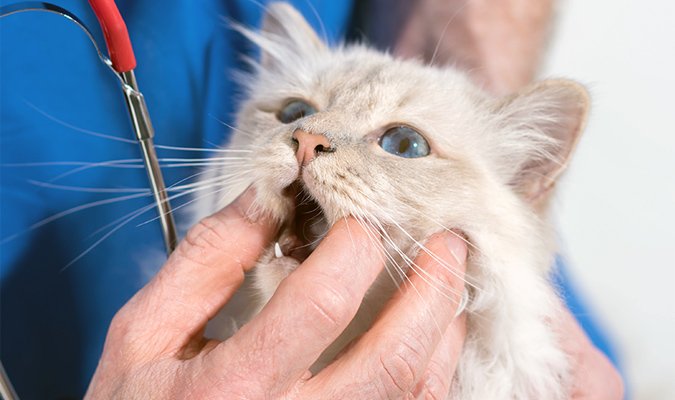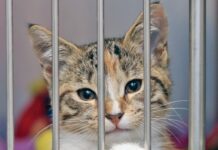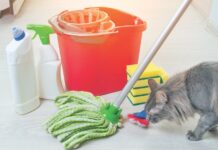thodonal | Deposit Photos

When you think drool, you think dogs, but cats drool, too. The difference is, feline drool is rarely normal. If your cat is drooling, she may be either overproducing saliva or having trouble swallowing it, and it is important to find out the cause.
Drooling Problems
The most common cause of excess drooling is a dental/periodontal problem, such as tooth resorption, stomatitis, or gingivitis. You might notice bad breath along with the drooling, a hesitation to eat or drink, redness/inflammation of the gums, or a buildup of tartar and plaque on her teeth.
-Drooling red flags include:
-Blood in the saliva
-Bad breath
-Lack of appetite
-Weakness
-Lethargy
Oral cancers, such as squamous cell carcinomas, or a foreign body such as a piece of bone or wood stuck across your cat’s hard palate, are possible causes. Cats also may swallow string, which can get stuck around the base of the tongue and trail into the gastrointestinal tract.
Any wound or injury to the mouth will usually stimulate increased drooling. Saliva soothes the sensitive tissues and helps to promote healing. Trauma, such as being hit by a car or falling from a window, that results in a broken or dislocated jaw can make swallowing difficult and painful. Electric shock (biting a cord) can injure sensitive oral tissues and cause excess salivation.
A cat battling kidney (renal) disease—common in senior cats—may drool. The buildup of toxins in the blood due to the decreased kidney function can cause uremia, which may lead to ulcers in the mouth, on the tongue, and on the gums. Extra saliva is often produced in these cases.
Liver disease, especially portosystemic shunts in young cats, can cause excess salivation. In fact, drooling is often one of the first symptoms of liver disease. This is secondary to toxin buildup and may be related to nausea. Anything that causes nausea in your cat can stimulate excessive salivation. Cats who get carsick will often drool heavily.
“Normal” Drooling
If you’ve ever tried to give your cat a bitter medication, you may have noticed increased drooling, especially if she holds it in her mouth prior to swallowing (or spitting it out, a skill that most cats have mastered).
Toxins can stimulate salivation. For example, many plants aren’t seriously toxic but are irritants to oral tissues and may cause drooling.
It’s wise to consider drooling in a cat abnormal until proven otherwise. If it’s truly the result of an injury or illness, the faster you address the problem, the sooner you can control it.



